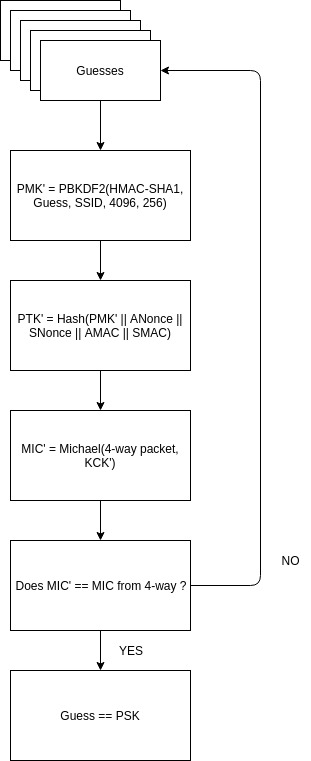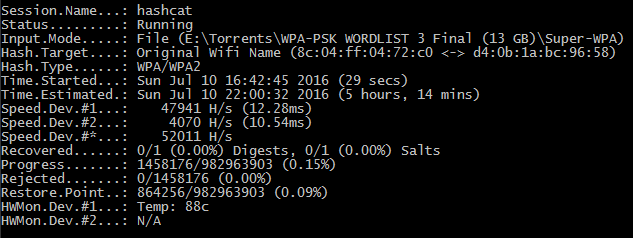
aircrack-ng and hashcat can do that for you. On a typical computer you might have at home one can try a couple of thousand passwords per second. The security of the WPA-PSK type Wi-Fis relies on the computationally involved process to simulate the handshake, which makes the attack very slow. In Layman’s terms the handshake is tested against a list of possible passwords until the correct one is found.
#WPA2 HASH LIST HOW TO#
If you want to test your own network and know how to do it, go ahead. Getting a handshake is in principle easy using the aircrack-ng suite. Here I will consider exclusively the issue that lies in your own hand: the choice of the passphrase. Let me clarify one point: not everything about WPA/WPA2 is secure.

The PSK setup is most common in private households. Among the possibilities to break into a WPA/WPA2-secured network we will focus on one in particular: a dictionary-based attack on a pre-shared key (PSK) by means of captured four-way handshake between a client and the access point. Still there are many reports of protected Wi-Fis being breached. From a cryptographic point of view, certain elements of the WPA/WPA2 protections belong to this class, if they are set up correctly. There are security systems are very hard to crack, at least in theory. I have the feeling that I need to repeat for the dim-witted: make sure you know about your legal situation! Do not break the law! In any case you should check the laws in your country.ĭisclaimer II: generating too much internet traffic on a website may get you into serious trouble.

I have to insist that you read and understand the following disclaimers.ĭisclaimer I: the information provided here is only to be used in attacks against your own setups or in all other cases with the permission of the owner. In this post I will discuss some options of creating your own and most likely unique list of passwords, which can be used for dictionary attacks against certain security setups like WPA.


 0 kommentar(er)
0 kommentar(er)
